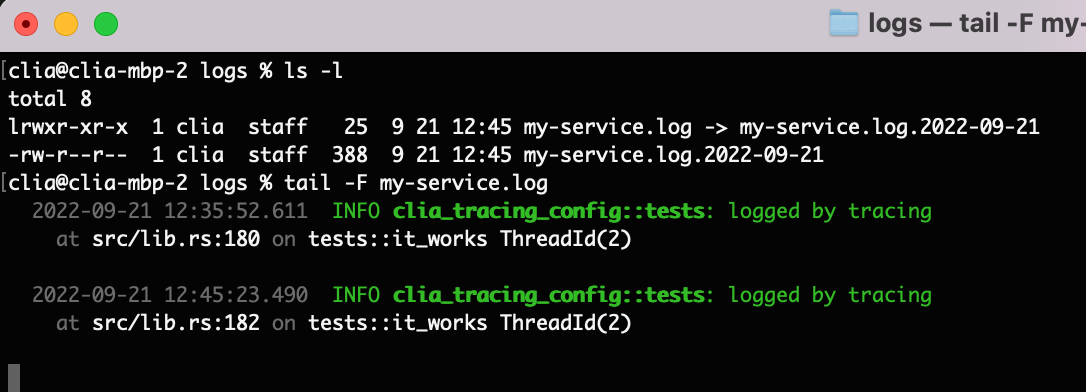Datadog Formatting Layer
A crate providing a tracing-subscriber layer for formatting events so Datadog can parse them.
Features
- Provides a layer for tracing-subscriber
- Generates parsable "logs" for datadog and prints them to stdout
- Enables log correlation between spans and "logs" (see datadog docs)
Why not just tracing_subscriber::fmt().json() ?
The problem is, that datadog expects the "logs" to be in a specific (mostly undocumented) json format.
This crates tries to mimic this format.
Usage
Simple
use datadog_formatting_layer::DatadogFormattingLayer;
use tracing::info;
use tracing_subscriber::prelude::*;
tracing_subscriber::registry()
.with(DatadogFormattingLayer)
.init();
info!(user = "Jack", "Hello World!");
Running this code will result in the following output on stdout:
{
"timestamp": "2023-06-21T10:36:50.364874878+00:00",
"level": "INFO",
"message": "Hello World user=Jack",
"target": "simple"
}
With Opentelemetry
use datadog_formatting_layer::DatadogFormattingLayer;
use opentelemetry::{
global,
sdk::{
propagation::TraceContextPropagator,
trace::{RandomIdGenerator, Sampler},
},
};
use opentelemetry_datadog::ApiVersion;
use tracing::{debug, error, info, instrument, warn};
use tracing_subscriber::{prelude::*, util::SubscriberInitExt};
// Just some otel boilerplate
global::set_text_map_propagator(TraceContextPropagator::new());
let tracer = opentelemetry_datadog::new_pipeline()
.with_service_name("my-service")
.with_trace_config(
opentelemetry::sdk::trace::config()
.with_sampler(Sampler::AlwaysOn)
.with_id_generator(RandomIdGenerator::default()),
)
.with_api_version(ApiVersion::Version05)
.with_env("rls")
.with_version("420")
.install_simple()
.unwrap();
// Use both the tracer and the formatting layer
tracing_subscriber::registry()
.with(DatadogFormattingLayer)
.with(tracing_opentelemetry::layer().with_tracer(tracer))
.init();
// Here no span exists
info!(user = "Jack", "Hello World!");
some_test("fasel");
// This will create a span and a trace id which is attached to the "logs"
#[instrument(fields(hello = "world"))]
fn some_test(value: &str) {
// Here some span exists
info!(ola = "salve", value, "Bla {value}");
}
When running this code with an datadog agent installed the logs will be sent to datadog and parsed there.
Otherwise the following output will be printed to stdout
{"timestamp":"2023-06-21T10:36:50.363224217+00:00","level":"INFO","message":"Hello World! user=Jack","target":"otel"}
{"timestamp":"2023-06-21T10:36:50.363384118+00:00","level":"INFO","message":"Bla fasel user=Jack ola=salve value=Fasel hello=world","target":"otel","dd.trace_id":0,"dd.span_id":10201226522570980512}


